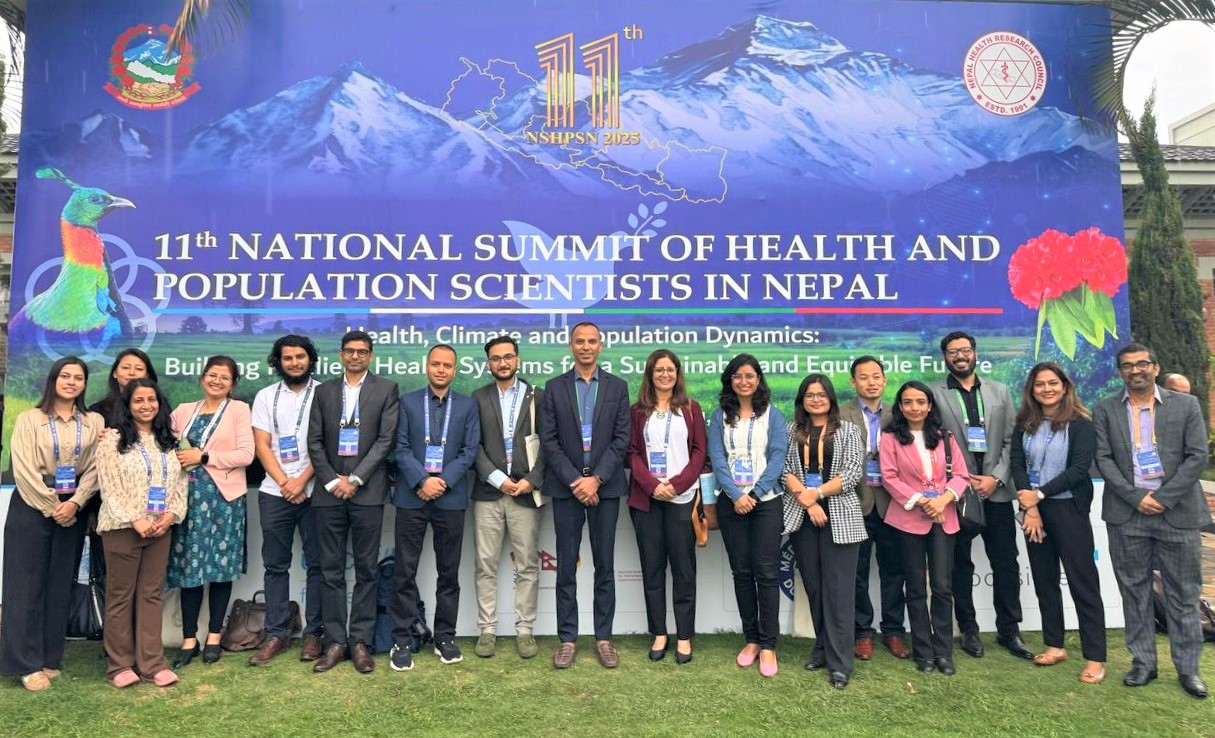April 25 was a shocker for all Nepalis, in terms of the devastation it created to life and property. Devastation needs to be followed up with reconstruction and thanks to support from various national and international helping hands; the national reconstruction is gradually gaining momentum. Yes, it is late but never too late.
Brilliant opportunity to build back better Nepal
When we saw the invitation to bid (ITB) from United Nations Office for Project Services (UNOPS), we were excited as we regarded it as a brilliant opportunity to build back better Nepal. We had initiated our relief programmes post the earthquake and had been carrying out some disaster assessment projects for UNICEF and Save the Children. We didn’t want to miss out on this opportunity to build back better Nepal. We put all our efforts in developing a good proposal. Luckily, we were chosen by UNOPS. The rest was history.
Countering the challenges
We had envisioned the challenges that we had to face to implement this project. We had a challenging scope of work to recruit about 2500 data collectors, manage various levels of trainings and also effectively handle the logistics. Apart from that, we had to coordinate with multiple agencies – National Planning Commission (NPC), Ministry of Urban Development, Ministry of Federal Affairs and Local Development (MoFALD), Central Bureau of Statistics (CBS) and other project partner Kathmandu Living Labs (KLL). Initially it was a struggle as consensus was required regarding various issues in terms of devising the implementation plan and actually implementing it.
Getting ready for recruitment
Recognized as a survey agency, we did have 11 years of experience mobilizing about 10,000 young professionals. However, we were mobilizing for the first time, a large volume of data collectors of 2500 civil engineers. So, we devised a recruitment strategy with a dedicated team involved in parallel recruitment sessions almost every day. Every day became a learning experience for us. As we learnt every day, in order to make our work effective and efficient, we took support from our ever ready Information Management Unit in standardizing our recruitment process. Now, with automated recruitment system, we have taken one step further in developing ourselves into a human resource recruitment agency as well. A big leap forward was introducing the use of tablets for recruitment with objective questions for quick assessment of the technical abilities of the interested candidates. With over 40 recruitment sessions already conducted, we are now integrating our valuable experience into our organizational good practice.
Toiling hard for parallel training sessions
We do conduct trainings on a regular basis to our field staff. However, we had not conducted parallel recruitment sessions before to 4-5 groups at a single time. Recently we conducted 4 parallel sessions for about 150 participants which was a new and good learning experience for us. With various lessons learnt on effective training management, we are now planning for about 12 parallel sessions for next phase of training participants. For the first time, we also introduced a post training test of training participants using tablets to assess their level of understanding about training content.
Managing large volume of logistics
Logistics management was another major component of our scope of work. We had to receive, verify and store the logistics items as well as prepare sets of survey kits to be used in the field for data collection. We also had to ensure the safety and maintenance of the survey kits. Through our dedicated and efficient logistics team, we have been able to successfully deploy logistics items for Dolakha and standardizing our logistics management practice, we are receiving, verifying, storing, packaging and preparing survey kits more efficiently than ever.
Destination Dolakha as Initial Doorstep
We started with Dolakha as a pilot district and we have reached almost to the half stage of data collection. We did struggle in the initial days in terms of local coordination and communication and now we are gradually making our lives easier for other districts learning from Dolakha experience.
Leaving No Stone Unturned
We are leaving no stone unturned to support the Government of Nepal in informing the reconstruction programme. Now, with the green signal from National Reconstruction Authority to put in all efforts to make this project, ‘Household Registration for Housing Reconstruction Programme’ a successful one, we hope to bring some smiles back to the saddened souls!
Contributors: Dr Sushil Baral and Sudeep Uprety












Comments (0)
No comments found.